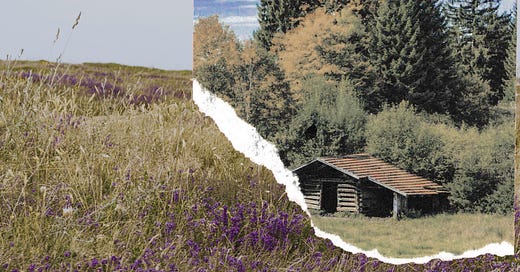I was seven the first time I saw a dead body.
A mother in our community died after battling cancer and her family held a small wake inside of their home. She was laying in her bed, face perfectly placid. She could have been sleeping.
My memory of this is watery with that hard-to-reach quality of a dream rather than something I saw with my eyes and felt in my body. But two things pierce through the slipperiness: how sad I felt for her daughters and husband, and the thick canopy of overwhelming grief I felt while waiting in line to see her.
And the grief wasn’t even mine. But it was visceral, wispy, tender. Like thick incense smoke rolling off of the people around me who loved her, filling the room with the smell of silent prayers and pleas and promises.
I think it also must’ve been my first time meeting grief.
When I was pregnant, I didn’t think about grief. Why would I?
I prepared myself (as much as one can) for giving birth.
I prepared myself for sleepless nights, potential postpartum depression, physical and hormonal changes.
I did not prepare for grief, of all things, to be one of the strongest emotions I felt my first year postpartum.
But there it was, alongside the love and deliciousness and pure delight. With every sweet cuddle and hiccup and intoxicating inhalation of baby toes, it was there, spindling in my periphery.
Initially I didn’t even know why I was grieving. I’d just had a baby (literally the opposite of a death, right?) What the fuck was there to grieve?
This isn’t how it’s supposed to be. What’s wrong with me?
So I minimized the grief, because I still felt so much love and joy and expansion, too. I love being somebody’s mom, and I love my baby. My grief seemed small and foolish when there were people around me grieving immeasurable loss.
My parents’ close friend died this morning. An elder relative moves visibly closer to death. For months, we have witnessed multiple genocides happening across the globe. Slaughter anywhere sends shockwaves of grief everywhere.
You can see grief everywhere, when you know how it moves.
Sometimes it hides in plain sight.
Sometimes it announces itself in ways we don’t expect, with words we don’t understand, eliciting feelings we cannot name.
Sometimes it’s resolute, prodigious—like a drop-kick from the gods.
The more I suffocated my grief, the stronger it became. It soaked me from the inside out until I was dripping, leaking, porous.
I grieved my old life and the deliciously irresponsible things I used to be able to do.
I grieved my pre-baby relationship and the things that used to only require a whim that now require planning.
I grieved all of my relationships because suddenly how I related to everyone I loved felt different, like I no longer fit inside the gently worn grooves of these relationships anymore.
I grieved me. The person I worked so hard to understand and become.
I used to know who I was.
But a new me was born the same day as my child, and I didn’t know who this mother-ized version was.
Grief made me unrecognizable to myself. I thought I knew who I was, but I didn’t account for the fact that a large part of self-actualization happens via our relationships.
We are all a mirror to and of each other: I know who I am because of what you show me about myself.
So when they leave us, the mirror cracks, obfuscates the image I had memorized.
I’m two years away from that freshly postpartum version of myself who began writing this essay.
The me who hunted her grief until it became so large she became the prey;
The me who was bound by grief’s shoreline, waves lapping and licking at stinging wounds she pretended not to have;
The me who felt defective for simply having colossal feelings.
Grief is always there—here—and I just hadn’t noticed it before.
Sometimes its presence is unmistakable and unshakable, flagrant even.
But a lot of the time, it’s quiet. It travels in echoes and dull aches. It cloaks itself inside of other emotions and impulses, ever the shapeshifter.
The grief is always here because the love is always here.
And so, the grief I felt when I became a mother wasn’t just about the loss of my pre-child life and identity.
It was also the liberation of my own capacity to love.
Because having a baby didn’t grow my heart bigger; it broke my heart completely open.
Shattered into incandescent fractals, my love is not quantifiable but quaking, staggering fathomlessness.
And now that my blood beats with a borderless ecstacy of love for my child, so the grief grows to match.
Love and grief, two sides of the same coin, two galaxies, ever dancing on the contours of my heart.





Gorgeous! Hit me in the heart
Stunning Ayu! Adore "the liberation of my own capacity to love" and how it lands with "quaking." Feel a shift in how you've written this, from within the experience to a new perspective on it, hard won and deserved